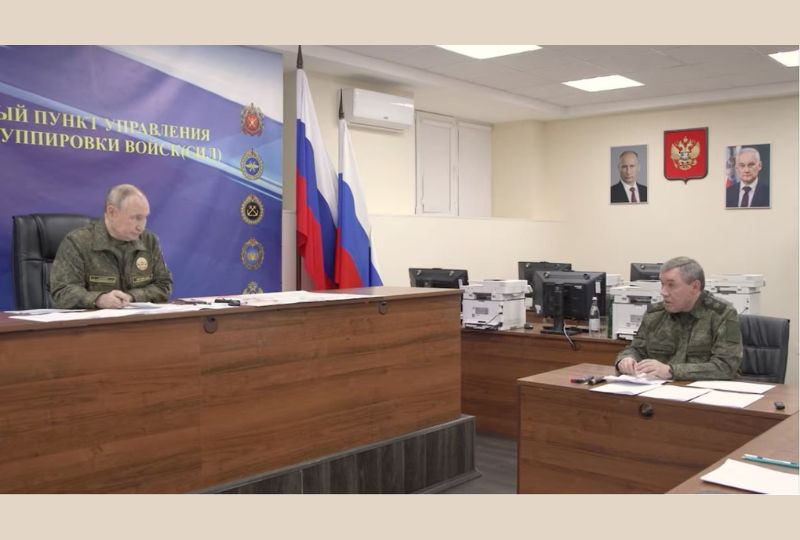Russia has successfully tested its nuclear-powered Burevestnik cruise missile, a nuclear-capable weapon Moscow says can pierce any defence shield, and will move towards deploying the weapon, President Vladimir Putin said yesterday.
The test, alongside a nuclear drill last week, sends a message that Russia, in Putin’s words, will never bow to pressure from the West over the war in Ukraine as US President Donald Trump takes a tougher stance against Russia to push for a ceasefire.
Russia’s top general, Valery Gerasimov, chief of the general staff of Russia’s armed forces, told Putin that the missile travelled 14,000km and was in the air for about 15 hours when it was tested on October 21.
Russia says the 9M730 Burevestnik (Storm Petrel) – dubbed the SSC-X-9 Skyfall by Nato – is “invincible” to current and future missile defences, with an almost unlimited range and unpredictable flight path.
“It is a unique ware which nobody else in the world has,” Putin, dressed in camouflage fatigues at a meeting with generals overseeing the war in Ukraine, said in remarks released by the Kremlin yesterday.
Since first announcing the 9M730 Burevestnik in 2018, Putin has cast the weapon as a response to moves by the US to build a missile defence shield after Washington in 2001 unilaterally withdrew from the 1972 Anti-Ballistic Missile Treaty, and to enlarge the Nato military alliance.
Putin said yesterday that he had once been told by Russian specialists that the weapon was unlikely to ever be possible, but now, he said, its “crucial testing” had been concluded.
He told Gerasimov, a trusted wartime commander, that Russia needed to understand how to class the weapon and prepare infrastructure for deploying the Burevestnik.
But the timing of the missile test – and its announcement by Putin in fatigues at a meeting at a command point with generals in charge of the Ukraine war – sends a signal to the West and to Trump in particular.
Russian anti-aircraft units downed a second Ukrainian drone headed for Moscow yesterday, the capital’s mayor, Sergei Sobyanin, wrote on the Telegram messaging app.
The first drone was downed earlier yesterday.
Sobyanin said specialist teams were examining fragments of the drones where they had hit the ground.


&uuid=(email))